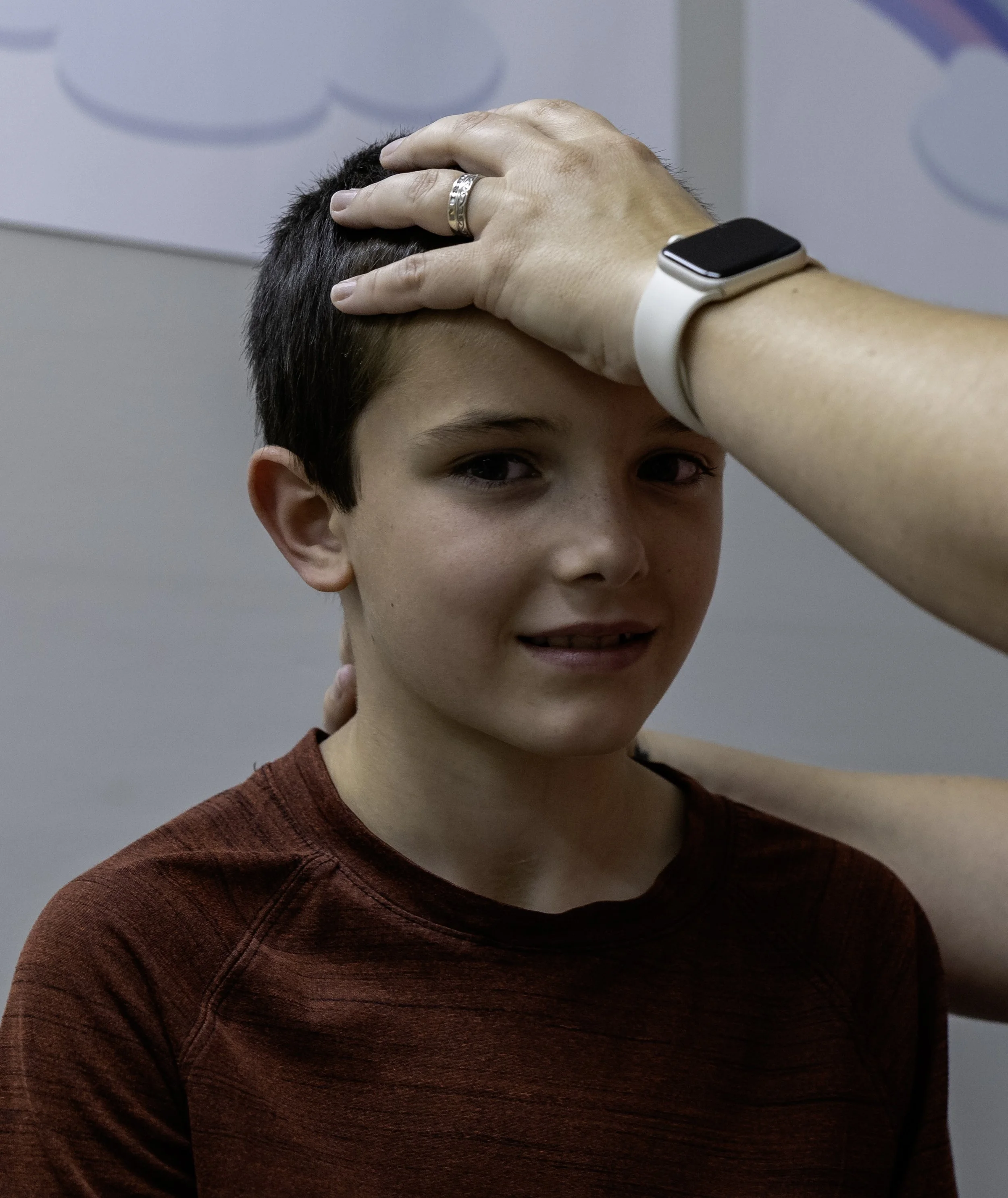
O’Brien Wellness
Specialized Occupational Therapy Services
Helping Children Grow a Mighty Mouth!
Welcome to O’Brien Wellness LLC!
O’Brien Wellness offers specialized occupational therapy services with a gentle, whole-body approach to support infants and young children in developing strong foundations for feeding, breathing, sleeping, and thriving. My practice combines advanced training in orofacial myofunctional therapy, craniosacral fascial therapy, and infant feeding support to uncover and address the root causes of challenges like tongue ties, airway dysfunction, and sleep-disordered breathing. Whether your child is a newborn struggling to latch, a toddler with feeding challenges, or a little one facing growth and regulation challenges, I’m here to guide your family with compassionate, individualized care rooted in both science and connection.

Orofacial Myofunctional Therapy
Orofacial myofunctional therapy (OMT) is a specialized treatment program that focuses on correcting abnormal patterns of oral and facial muscle function. The therapy primarily addresses issues like improper tongue positioning, mouth breathing, incorrect swallowing patterns, and poor oral rest postures that can affect speech, breathing, chewing, and facial development.
Craniosacral/ Fascial Therapy
CFT is a gentle, hands-on approach that releases tensions deep in the body to relieve pain and dysfunction and improve whole-body health and performance. CFT can be an complementary approach that is beneficial when used in combination with OMT and pre/post TOT’s releases.
Pre/Post Release Therapy
Pre-therapy helps reduce tension, improve function, and ensure readiness for the procedure. Post-therapy promotes healing, restores optimal movement, and prevents reattachment. Together, they support the best possible outcome for feeding, breathing, and overall development.
Meet Your Therapist
Andrea O’Brien MS, OTR/L AOMT-C
Owner, Occupational Therapist
I am so excited you are here! I have been an occupational therapist for the past 10+ years working in a variety of backgrounds, but my heart has always been in pediatrics. My journey into private practice started with the book Breath by James Nestor. Learning about mouth breathing and its detrimental impact on facial growth had me going down the rabbit holes as a mother to a mouth breather.
Now I am on a mission to help others! Click here to learn more about my background and approach.
If you have questions about you or your child’s facial or airway development, let’s chat!

“Your lips are your face’s braces, and your tongue is your palate expander”
-
~Linda D’Onorfio
-
Are You Ready to Get Started?
Services are provided in-person in New Hartford, NY, or virtually.
Step One
It all starts with a free 15-minute consultation where we’ll talk through your concerns and share how we can help support your child’s growth and development.
Step TWO
We start with a thorough assessment that includes a review of your child’s medical history, developmental milestones, and both functional and structural patterns. You'll receive a detailed report with our findings, along with personalized recommendations. We’ll go over everything together, so you feel confident in the next steps and any referrals that may be helpful.
Step THREE
Therapy starts right from day one! Each session is personalized to meet your child’s unique needs and often includes gentle exercises to support oral function, along with hands-on bodywork to promote whole-body integration and lasting progress.










